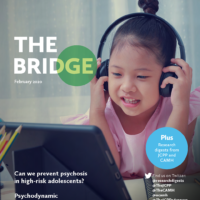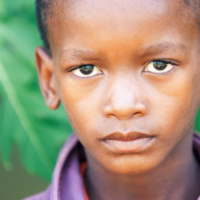Research digest
-

Childhood behaviour patterns linked with romantic partnering in adulthood
Children with behavioural disorders, such as ADHD or conduct disorder, are more likely to experience partnership problems in adulthood, including partner conflict and lower relationship satisfaction.
Read more -

Which genetic mechanisms underlie the relationship between preschool vocabulary and later literacy skills?
Preschool vocabulary acquisition is associated with later language and literacy skills. Genetic factors might partially explain this link, but the precise mechanisms are unclear. Thus far, twin-based studies have implicated mechanisms involving genetic amplification or genetic innovation.
Read more -

Progressive cortical thinning might identify children at risk of developing psychotic spectrum symptoms
Offspring of patients with schizophrenia or bipolar disorder have an increased risk of developing these conditions. However, our capacity to predict the long-term outcomes of these at-risk individuals is limited. Now, researchers have investigated whether longitudinal changes in brain structure differ in individuals at high familial risk who develop psychotic spectrum symptoms, compared to those who do not and to low-risk controls.
Read more -

How far have we advanced this decade in understanding reading disorders?
Earlier this year, Margaret Snowling and Charles Hulme at the University of Oxford compiled an Annual Research Review for the Journal of Child Psychology and Psychiatry on reading disorders.
Read more -

Chronic illness may present barriers to engaging in CBT for depression
Between 10 and 20% of teenagers have a chronic illness:1 an ongoing health condition that lasts at least 3 months, and for which a cure is unlikely. Research suggests that teenagers with chronic illnesses are more likely to also have low mood and develop depression than their healthy peers.2
Read more -

February 2021 – The Bridge
This issue of The Bridge includes several articles which focus on child and adolescent psychoanalytic psychotherapy. This therapy aims to help young people, their families, or their support networks to better understand each young person’s emotions, behaviour, and relationships.
Read more -

Child soldiers exposed to more violence and combat are at greater risk of mental health problems
Sadly, the involvement of children in armed conflict is increasing,1 and leads to a higher risk of developing mental health problems.
Read more -

‘Cool Little Kids’ helps reduce later anxiety symptoms but not broader internalising problems
Children with a shy/inhibited temperament are at risk of developing internalising problems later in life.1 Unfortunately, the responses to such behaviours by some parents — such as overprotective or harsh parenting — can add to this risk.
Read more -

Preterm infants have social cognition deficits which improve in childhood
Researchers at the University of Edinburgh have investigated social attentional preference and its relationship with neurodevelopment in preterm infants.
Read more -

Can we prevent psychosis in high-risk adolescents?
Over the past two decades we’ve seen growing efforts to prevent psychosis developing in people with subtle signs and symptoms of the disorder, termed ‘Clinical High-Risk State for Psychosis’ (CHR-P).
Read more